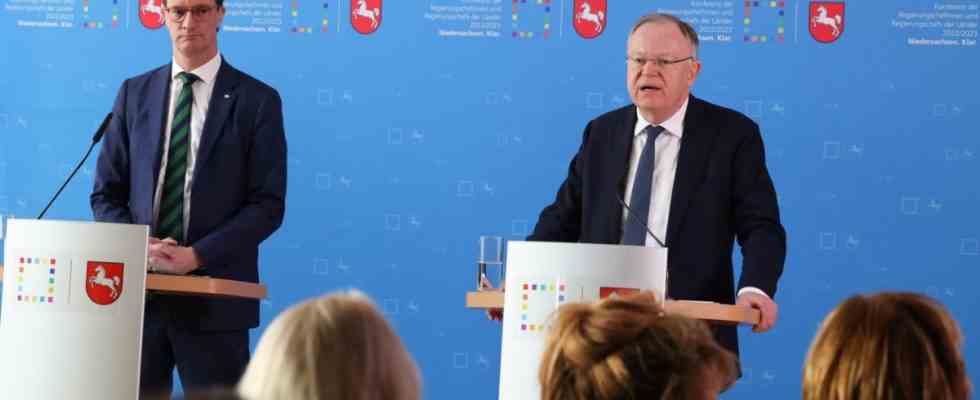This number is obviously driving everyone: almost 59,000 asylum seekers were counted in Germany in January and February. That was almost twice as many as in the same months of the previous year. And that doesn’t even include the people from the Ukraine: They don’t have to apply for asylum.
This increase has long worried the German prime ministers. In his country, the municipalities are at the limit when it comes to accommodation, the mayors are sending numerous “emergency signals,” reports Hendrik Wüst (CDU) from North Rhine-Westphalia. “We mustn’t let it get to the point where the mood changes.”
“More must come from the federal government”
Refugees should be better distributed within the EU, people without a right to stay should be deported more quickly – the Prime Ministers’ Conference (MPK) agreed across party lines at their meeting on Thursday. The heads of government also see themselves as patrons of the municipalities, which would otherwise be overwhelmed, as the current MPK chairman Stephan Weil (SPD) makes clear. Above all, they are concerned with financing the accommodation: “More needs to come from the federal government,” says Weil.
So they want to talk about money – the only problem is: there is no one there to talk to about it. Chancellor Olaf Scholz (SPD) does not want to meet the state heads of government until May 10th – not everyone feels that this is early or on time. At their meeting on Thursday, they have to limit themselves to finding a common line for the negotiations with Scholz. The federal and state governments should split the costs for the refugee area equally, Weil and Wüst have that in mind. In no case should there be only one lump-sum payment from the federal government, the states are demanding; It would be better to calculate per capita so as not to be left with the costs when the number of refugees is increasing.
The chancellor makes his own calculations
So far, however, the chancellor has indicated little willingness to compromise. The federal government paid 3.75 billion euros last year, and this year 2.5 billion euros should flow, he said in the Bundestag. And because refugees from Ukraine now receive the basic income that the federal government finances, Scholz’ calculation goes like this: “This means that the federal government bears the vast majority of the costs for accommodation and food.”
In the federal states, they calculate it differently: the federal government covers maybe 15 to 20 percent of the costs for asylum seekers, state premier report, and some are annoyed that the federal government quietly and secretly likes to refer to the supposedly full coffers of the federal states. After all, Federal Interior Minister Nancy Faeser (SPD) has now signaled that further support is possible. But you have to “wait and see how the development is”.
“We’ve been asking for support for months, nothing has happened for months,” scolds Bavarian Prime Minister Markus Söder (CSU) – and asks rhetorically: “Is that the Chancellor’s Germany pace?” Like his counterparts, he would like the Federal Government to be more decisive on other issues. For example, with the jointly agreed acceleration of approval procedures for infrastructure projects: There have been concrete proposals for a long time, the states complain, but the federal government is not making any progress. Yes, for four months he has not even invited the working group that has already been set up to an initial meeting.
Or the high electricity prices for energy-intensive companies: This is a question that concerns all 16 country heads equally, says Weil, since companies in Germany are no longer competitive. The federal government must “quickly” develop proposals for a subsidized industrial stream. Economics Minister Robert Habeck (Greens) also promised this last week – during the first half of the year.

